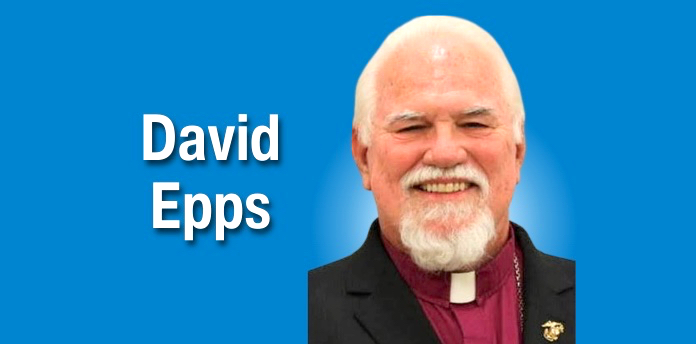One of my favorite songs is a happy sounding tune by Canadian singer-songwriter Daniel Powter called, “Bad Day.” According to one source, “A bad day means things aren’t going well for you on that particular day or maybe that week. Maybe you got demoted or fired. Maybe your dog died. Maybe the doctor gave you bad news.”
The fifth season of American Idol used “Bad Day” to underscore a montage of each contestant shown when they were eliminated. Although it was not his decision to have it on the show, Powter said: “I need every opportunity that I can to get the music out there.” I personally like the song a great deal because, even if things go wrong, the tone of the song seems, to me at least, to hold out hope for better tomorrows.
When I played football, I had a coach that, when I made a mistake or, even if we lost a game we were expected to win, his attitude was “Get over it!” There were other plays to run and other games to win. We weren’t to dwell on failure or wallow in self-pity.
We have just been through three very contentious presidential elections. The country remains divided with almost half of the voting public losing in each of those three elections. In the first of the three, supporters of Hillary Clinton were on the losing side. In the second, the advocates of Donald Trump lost a close election. This time around, the supporters of Kamala Harris lost in a hotly contested race.
After each of the three, the losers grumped, griped, complained and, in some cases, spoke and behaved as though the Republic was in mortal danger. Yet here we are post-elections and there is no sign of America sliding into the abyss. The flag still flies, and democracy has prevailed, whether some like it or not.
I am always amazed how people deal with failure. In the second election mentioned earlier, the losing side claimed that the election had been “stolen,” yet scores of court cases found no such thing. For four years, the battle cry was that this just past election results had to be “too big to fix.”
Now, institutions of alleged higher learning are cancelling classes and providing counseling and “safe spaces” for university students who, in their fragility, (whose definition is “the quality of being easily broken or damaged”) have seemingly been traumatized. Good grief.
I watched the election results until 11:30 p.m. on election night and decided to go to bed and catch the results later. Sometime after 2:00 a.m., I awoke and checked in with the news to discover that a candidate had been elected. My response? Relief. Relief that the whole sordid, nasty, name-calling, ridiculously expensive business was over. My actions? I went back to sleep. If the results had been different, my response and actions would have been the same.
Your side won? Be gracious in your victory and hold the people you helped to elect accountable. Your side lost? You had a bad day. Get over it. Discover why your side lost and fix it.
In 1974 George Foreman was the undefeated and undisputed heavyweight champion of the world. At 25, he was a 4-1 favorite to defeat the ageing 32-year-old former heavyweight champion Muhammad Ali. One billion people watched the fight on live TV throughout the world. This included fifty million who watched on pay-per-view. Ali knocked out Foreman in the eighth round of a scheduled fifteen round fight.
In 1994, Foreman regained the Heavyweight Championship and, at 45, became the oldest fighter to hold that title. Foreman eventually became close friends with Ali. He said that Ali became the most wonderful friend he ever had.
In an interview with Jim Lampley, Foreman shared, “I do not know how he got my number,” Foreman said of the call he believed happened in the late 1970s. “He called and complimented me for about 20 minutes then he said, ‘George, would you do me a favor?’ I said, ‘Certainly.’ He said, ‘Please come back and beat Ken Norton and fight him for me … I can’t beat him. George, you can. He’s afraid of you. I’ll let you use my training camp and everything but please come back and beat him for me.'”
Foreman said after that day the two were “best of friends.”
“We started talking on the telephone,” he said. “He’d call me, I would try to run him down wherever he be. We had these religious conversations. His children also became good friends with my children. That is where the love affair began.”
George Foreman had a bad day. He got over it. Became good friends with his former adversary. He went on to greatness and restored fame.
That is maturity. That is what makes Foreman a hero and role model for many. We don’t get to choose when bad days or bad things happen. What we do get to do is choose how we will respond and react. How we do that will determine whether, in the final analysis, we are truly winners or losers.
[David Epps is the Rector of the Cathedral of Christ the King. Worship services are on Sundays at 10:00 a.m. and on livestream at www.ctk.life. He is the bishop of the Diocese of the Mid-South (www.midsouthdiocese.life). He has been a weekly opinion columnist for The Citizen for almost 28 years. He may be contacted at [email protected].]













Leave a Comment
You must be logged in to post a comment.